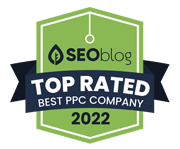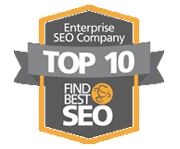Retention Rate
Industry average: 55%
WHY OUR RETENTION RATE EXCEPTIONAL?
Scalable Strategies
Industry Experts
Focus on Results
CLIENT SATISFACTION SCORE
Industry average: 70%
OUR CLIENT SATISFACTION RATE EXCEPTIONAL?
Tailored Solutions
Open & Clear Communication
Consistent Results
“Gtechwebindia has delivered a quality website that has impressed the client. Their SEO efforts, especially the off-page activities, have also improved the client's Google ranking. The team's collaborative approach, quick responses, and timely delivery of tasks have been hallmarks of their work.”
 Ivanov Lev, OWNER
Ivanov Lev, OWNER
Review from Clutch.co
SEO Awards
Won in 2024 Alone
Achievements and Milestones
Positive Feedbacks
Proven Results
Client Business Growth
Read Our Blog Content
What is Search Engine Optimization (SEO) and Why It Matters
Boost your online presence and attract the right audience with powerful SEO strategies. From keyword optimization to technical improvements, we help your website rank higher on search engines and drive more organic traffic. Grow your business with results-driven SEO services tailored to your goals. Let’s take your digital visibility to the next level—starting today!
What is Search Engine Optimization (SEO)?
In today's digital-first world, businesses are constantly looking for ways to improve their online visibility and connect with potential customers. One of the most effective methods for achieving this is through Search Engine Optimization, commonly known as SEO. But what exactly is SEO, and why is it so important for modern businesses?
In this blog, we’ll explain SEO in simple terms, how it works, why it matters, and how you can start optimizing your website to gain more visibility, traffic, and conversions.
Understanding the Basics of SEO
Search Engine Optimization (SEO) is the process of improving a website’s visibility in search engine results pages (SERPs) like Google, Bing, or Yahoo. The primary goal of SEO is to increase organic (non-paid) traffic by making your website more appealing and relevant to search engines and users alike.
When someone types a query into a search engine, algorithms decide which web pages best match the search intent. SEO is all about aligning your website with these algorithms so your pages appear higher in the search rankings.
Why is SEO Important?
Imagine having a beautiful store in a remote location with no signage or directions. No matter how amazing your products are, very few people will find you. That’s exactly what happens to websites that aren’t optimized for search engines—they remain invisible.
Here’s why SEO is crucial for any website:
- Increased Visibility: Appearing on the first page of Google significantly improves your chances of being seen by potential customers.
- Better User Experience: SEO encourages site speed, mobile-friendliness, and useful content—all contributing to a better experience.
- Cost-Effective Marketing: Unlike paid ads, organic traffic doesn’t cost per click. It offers long-term value at a lower cost.
- More Traffic and Leads: Ranking higher means more clicks, and more clicks often mean more sales, leads, or engagement.
How Do Search Engines Work?
To understand SEO, it helps to know how search engines operate. Here’s a simplified breakdown:
- Crawling: Search engines use bots (called crawlers or spiders) to browse the internet and discover new content.
- Indexing: Once discovered, pages are added to the search engine's index—a massive database of content.
- Ranking: When a user searches, the search engine ranks pages in the index based on factors like relevance, quality, and user experience.
Your job through SEO is to make sure your website gets crawled, indexed, and ranked—preferably as high as possible.
Types of SEO
There are several types of SEO, each targeting different aspects of optimization. Understanding them helps you create a well-rounded strategy.
1. On-Page SEO
This involves optimizing elements within your website, such as:
- Meta titles and descriptions
- Headers (H1, H2, H3, etc.)
- Keyword usage
- Internal linking
- Image optimization
- URL structure
- High-quality, informative content
2. Off-Page SEO
Off-page SEO includes actions taken outside your website to improve rankings. The most common is link building, which involves acquiring backlinks from other websites. It also includes:
- Social media sharing
- Influencer outreach
- Brand mentions
3. Technical SEO
This ensures that search engines can crawl and index your website without issues. It focuses on:
- Website speed
- Mobile responsiveness
- Secure HTTPS connection
- Clean site structure and sitemaps
- Fixing broken links and duplicate content
4. Local SEO
Local SEO is important for businesses targeting a specific geographic area. It involves:
- Google Business Profile optimization
- Local keywords (e.g., “SEO services in Delhi”)
- Customer reviews
- Local citations and directories
The Role of Keywords in SEO
Keywords are the foundation of SEO. These are the words and phrases that users type into search engines. By identifying and targeting the right keywords, you can attract users who are actively searching for your services or products.
There are three main types of keywords:
- Short-tail keywords (e.g., “shoes”)
- Long-tail keywords (e.g., “best running shoes for flat feet”)
- Local keywords (e.g., “shoe stores in Mumbai”)
Tools like Google Keyword Planner, Ubersuggest, and SEMrush can help you find the right keywords for your niche.
Content is Still King
One of the most important aspects of SEO is content. Search engines prioritize websites that provide value to users. That’s why high-quality, well-structured, and original content plays a major role in your rankings.
When creating content:
- Solve real problems for your audience
- Use keywords naturally (no keyword stuffing!)
- Break content into easy-to-read sections
- Add visuals like images, infographics, or videos
Whether it’s blogs, service pages, or FAQs—great content helps you rank better and build trust with your audience.
Measuring SEO Success
SEO is not a one-time task—it’s an ongoing process. To ensure your efforts are paying off, you need to measure and track performance. Key SEO metrics include:
- Organic traffic
- Keyword rankings
- Bounce rate
- Click-through rate (CTR)
- Backlink profile
- Conversion rate
Use tools like Google Analytics, Google Search Console, and Ahrefs to monitor progress and identify areas for improvement.
Common SEO Mistakes to Avoid
Here are some pitfalls that can hurt your SEO efforts:
- Ignoring mobile optimization
- Using duplicate or thin content
- Not optimizing meta tags
- Overusing keywords (keyword stuffing)
- Not building quality backlinks
- Slow-loading websites
- Not submitting a sitemap to search engines
Avoiding these mistakes helps maintain a strong and sustainable SEO strategy.
Final Thoughts
SEO is one of the most powerful digital marketing strategies to grow your website traffic, build brand awareness, and attract customers without spending heavily on ads. While it may take time to see results, the long-term benefits are worth the effort.
By understanding the basics of SEO, optimizing your content and site structure, targeting the right keywords, and avoiding common mistakes, you can steadily climb the search rankings and get ahead of the competition.
Next-Level OUR Strategies
to Fuel Your Business Growth

- Dedicated account management with an expert in-house team for seamless strategy execution
- Comprehensive platform for monitoring, analyzing, and optimizing SEO performance and ROI
- Custom-tailored strategies aligned with business objectives, market dynamics, and integrated marketing efforts
- Advanced project management system, 24/7 support, and direct client communication for streamlined collaboration
Typical SEO company
- Dedicated account manager who collaborates with you to strategize and implement tailored solutions
- Outsourced SEO tools with additional subscription costs transferred to you
- Generic optimization guidelines with no guarantee of measurable results
- Scheduled support, but inconsistent when urgent website issues arise
In-house SEO
- Team members struggling to manage 100+ ranking factors with limited time and resources
- Combination of free and paid SEO tools, often leading to additional costs
- Clear goals set, but difficult to achieve due to constraints in time, resources, and expertise
- Unstructured processes with documentation gaps, resulting in delays and budget inefficiencies
FAQs about Digital Marketing & SEO services
What are SEO services?
SEO (Search Engine Optimization) services are professional strategies and techniques used to improve a website’s visibility on search engines like Google, Bing, and Yahoo. These services involve optimizing website content, improving site structure, enhancing user experience, and implementing best practices to increase organic search rankings. The goal is to drive more targeted traffic, increase brand awareness, and boost business growth.
Why use SEO services?
SEO services are essential for businesses looking to improve their online presence and attract potential customers. They help increase website traffic, enhance search engine rankings, and improve conversion rates. By implementing effective SEO strategies, businesses can gain a competitive advantage, establish credibility, and generate long-term revenue growth.
What is SEO?
SEO (Search Engine Optimization) is the process of optimizing a website to rank higher on search engines. It involves improving various aspects such as keywords, content quality, technical structure, and user experience to make a website more relevant and authoritative in search results. Effective SEO leads to increased website traffic, better engagement, and higher conversions.
How does SEO work?
SEO works by optimizing different elements of a website to align with search engine algorithms. It involves keyword research, content optimization, link building, on-page and off-page SEO, and technical improvements such as site speed and mobile responsiveness. Search engines use complex algorithms to determine rankings, and SEO ensures that a website meets those criteria to rank higher and attract relevant users.
How much do SEO services cost?
The cost of SEO services varies based on factors such as business size, industry competitiveness, and the scope of work required. Pricing models include monthly retainers, project-based fees, or hourly rates. On average, small businesses can expect to pay anywhere from $500 to $5,000 per month, while larger enterprises may invest significantly more for comprehensive SEO strategies.
What are the types of SEO services?
SEO services can be categorized into several types, including:
- On-Page SEO: Optimizing website content, meta tags, headings, and images to improve relevance and user experience.
- Off-Page SEO: Building high-quality backlinks, social signals, and external authority to increase website credibility.
- Technical SEO: Enhancing website structure, mobile-friendliness, site speed, and security to improve search engine indexing.
- Local SEO: Optimizing a business for location-based searches, including Google My Business optimization.
- E-commerce SEO: Tailoring SEO strategies for online stores to improve product visibility and drive sales.
- Enterprise SEO: Large-scale SEO strategies designed for big businesses with complex website structures.
How do I know which type of SEO service I need?
Determining the right SEO service depends on your business goals, target audience, industry, and current website performance. A professional SEO audit can assess your website’s strengths and weaknesses, helping you choose the best strategy. Businesses targeting local customers may need Local SEO, while e-commerce sites may require specialized product page optimization.
Which ranking factors do SEO services optimize for?
SEO services focus on multiple ranking factors, including:
- Keyword relevance and placement
- High-quality, original content
- Page speed and mobile responsiveness
- Secure and user-friendly website architecture
- Backlinks from authoritative sources
- User engagement metrics (click-through rate, bounce rate, dwell time)
- Structured data and schema markup
- Internal linking and website navigation
How long does it take for SEO services to work?
SEO is a long-term investment, and results depend on competition, industry, and existing website performance. Typically, noticeable improvements take 3 to 6 months, while achieving top rankings in highly competitive markets may take 6 to 12 months or more. Continuous optimization and content updates are necessary for sustained success.
What is the difference between SEO and PPC?
SEO focuses on organic search rankings and requires long-term efforts, whereas PPC (Pay-Per-Click) advertising provides instant visibility by paying for ads. While PPC delivers immediate results, SEO is cost-effective in the long run, offering sustained traffic and credibility without continuous ad spend.
Can I do SEO myself, or do I need an expert?
While basic SEO techniques can be learned, effective SEO requires expertise, time, and continuous adaptation to algorithm changes. DIY SEO may work for small websites, but for competitive industries and long-term success, professional SEO services ensure better results and efficiency.
Does SEO work for all types of businesses?
Yes, SEO is beneficial for businesses of all sizes and industries. Whether you run an e-commerce store, local business, service-based company, or enterprise, SEO strategies can be tailored to meet specific goals and target audiences.
What is Local SEO, and why is it important?
Local SEO focuses on optimizing a business for location-based searches. It involves improving Google My Business listings, acquiring local backlinks, and ensuring NAP (Name, Address, Phone Number) consistency across directories. Local SEO is essential for businesses serving specific geographic areas, helping them appear in "near me" searches and local map listings.
How do backlinks impact SEO?
Backlinks from authoritative and relevant websites improve domain authority and search rankings. However, low-quality or spammy backlinks can harm SEO. Building a strong backlink profile through ethical practices such as guest blogging, partnerships, and high-quality content creation is essential for long-term success.
What role does social media play in SEO?
While social media signals do not directly impact rankings, they contribute to SEO by increasing brand awareness, driving traffic, and generating engagement. A strong social media presence helps content reach a wider audience, encouraging shares, backlinks, and interactions that indirectly support SEO efforts.
How do I choose an SEO service provider?
Selecting the right SEO agency requires thorough research. Look for providers with proven experience, transparent pricing, and a track record of successful case studies. Avoid agencies promising instant results, as SEO requires time and consistent effort. A good SEO provider will offer customized strategies, regular progress reports, and ethical optimization techniques
How do SEO services help grow a business’s bottom line?
SEO services drive organic traffic, improve brand visibility, and increase customer engagement, ultimately leading to higher conversions and revenue. By ranking higher in search results, businesses attract more qualified leads who are actively searching for their products or services. Improved online presence leads to better customer trust and long-term profitability.




















